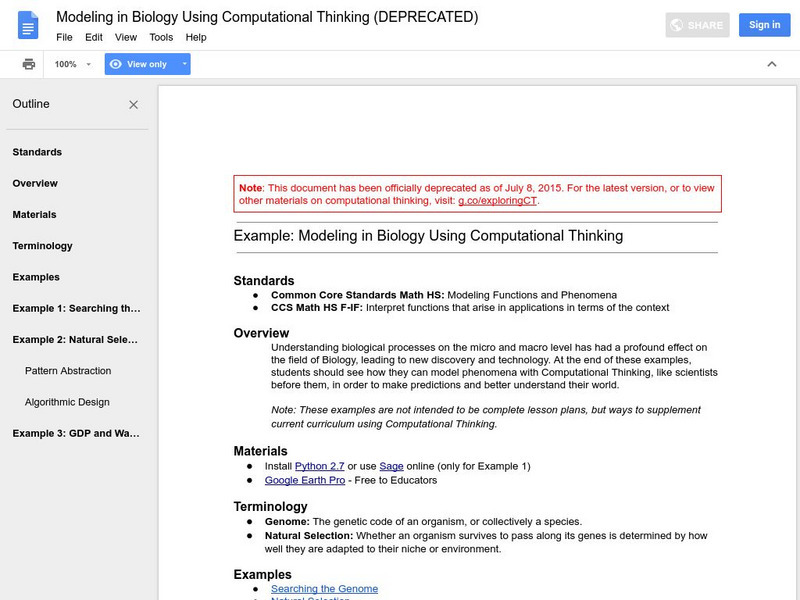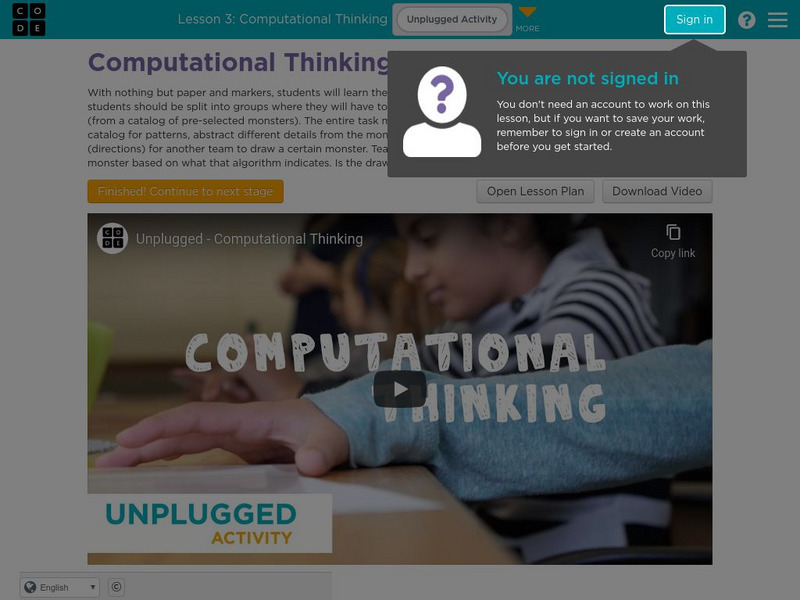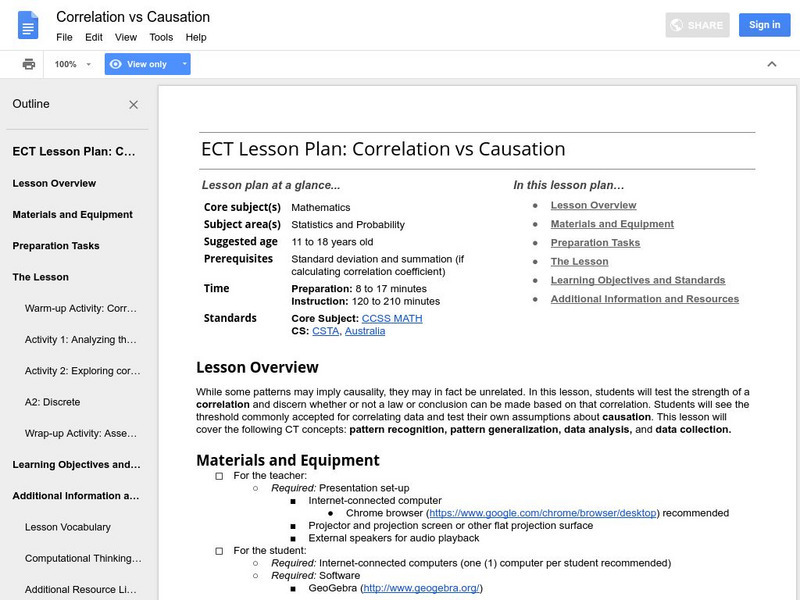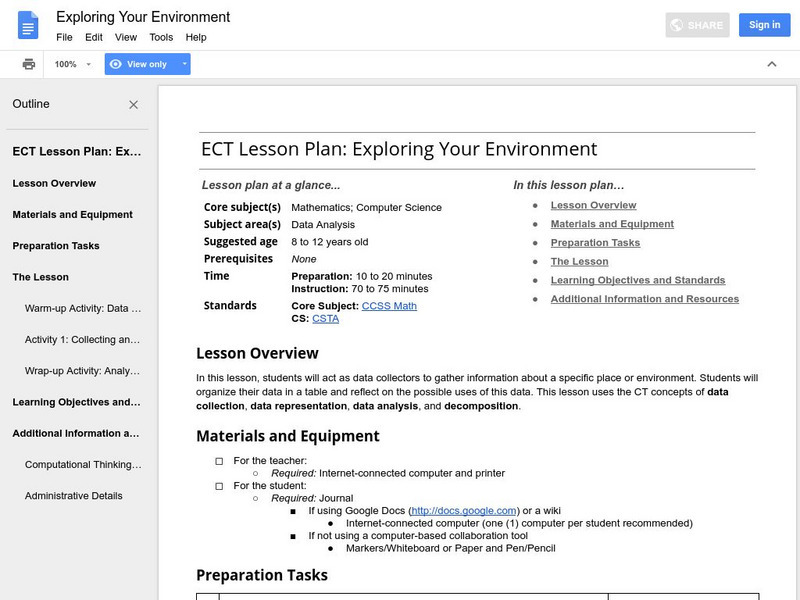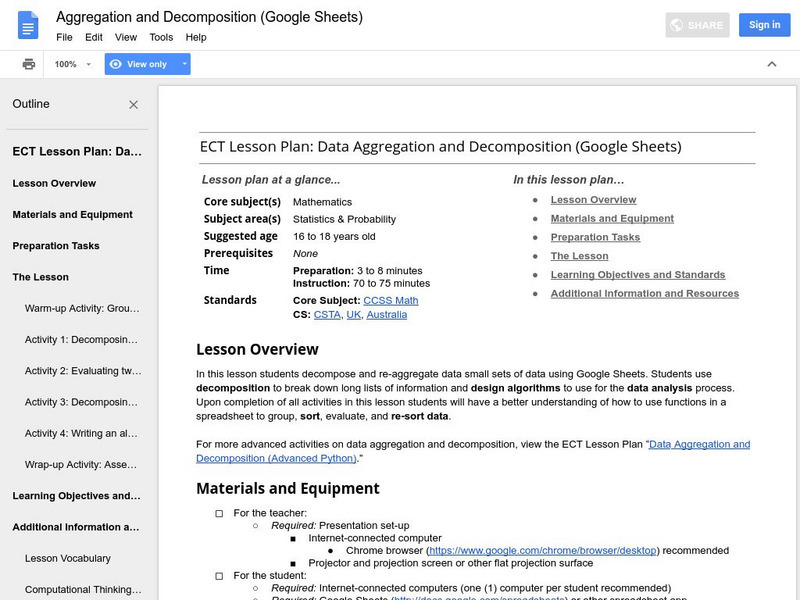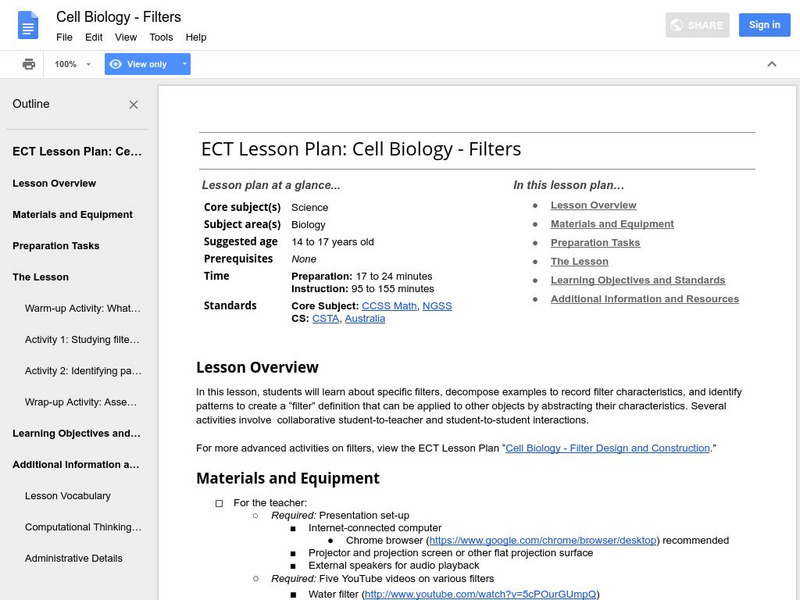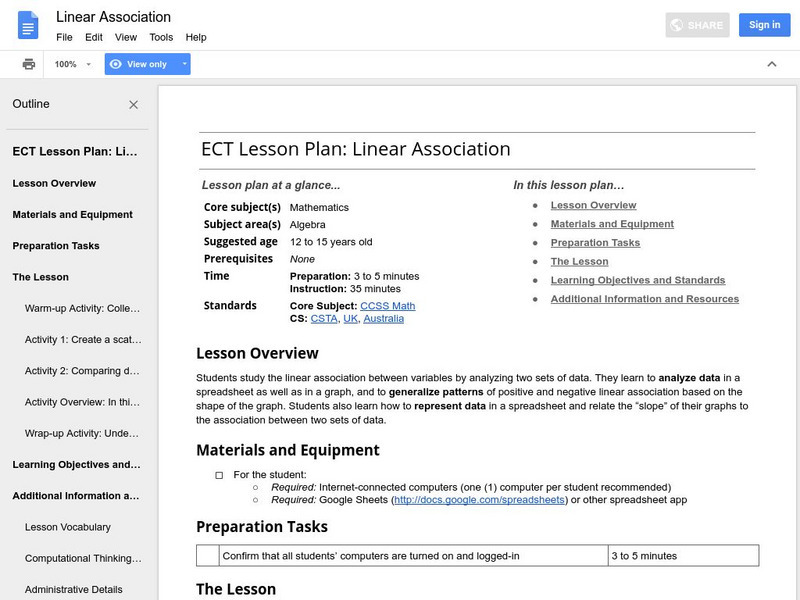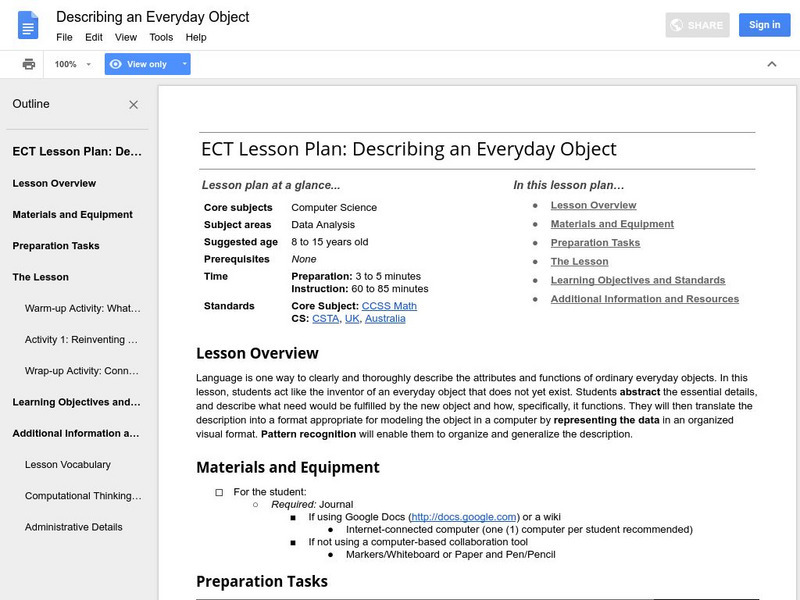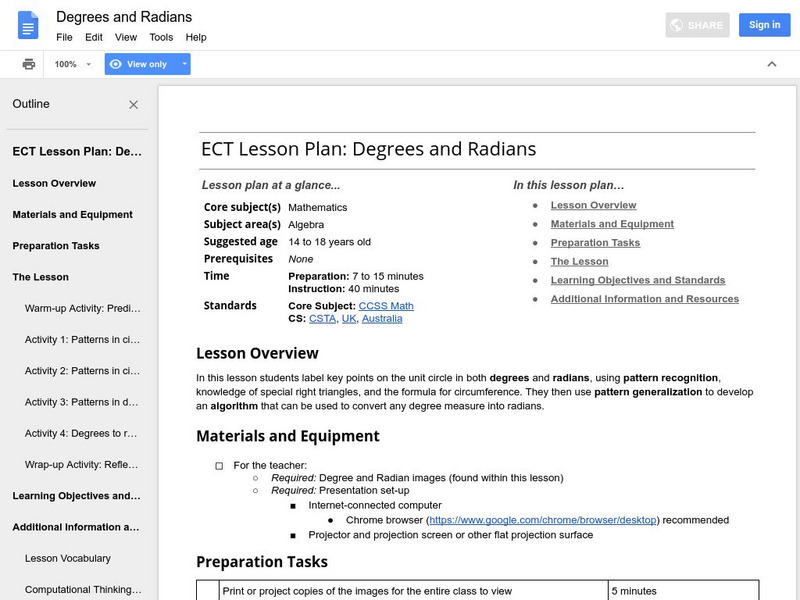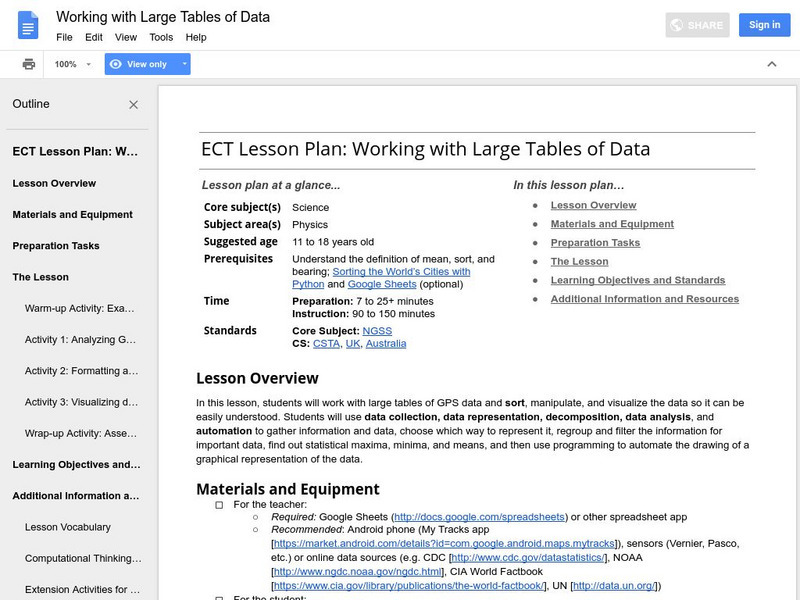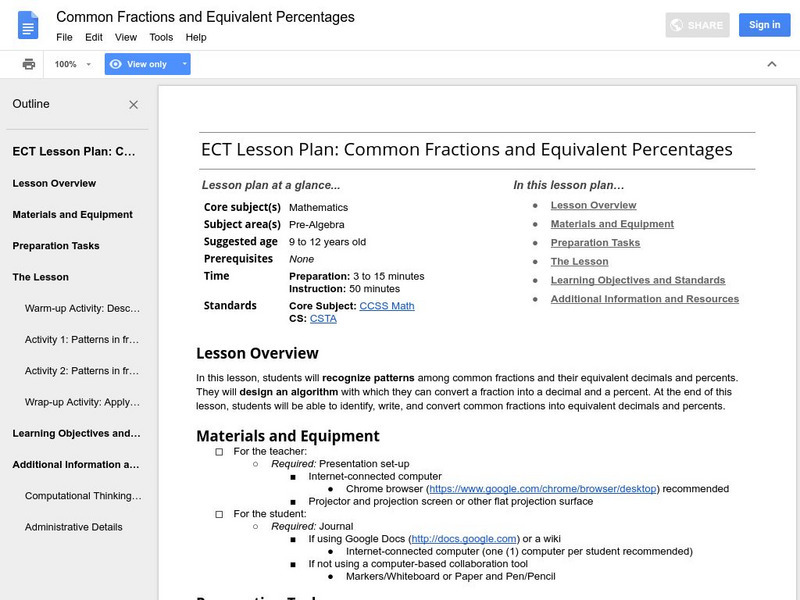Hi, what do you want to do?
Other
Robotc: Thinking About Programming: Programmer & Machine [Pdf]
In this lesson, students learn about the roles of the programmer and the robot, and how the two need to work together in order to accomplish their goal. Students also understand logic behind the robot's actions, and break a big plan down...
Other
Project Euler
A collection of challenging mathematical and computer programming problems that will require more than just mathematical insights to solve. The use of math skills will help students arrive at efficient methods, while the use of...
University of Canterbury
University of Canterbury: Cs Unplugged: Primary Enrichment Program [Pdf]
This unit introduces students to some of the building blocks of how computers work without using a computer at all. The lessons keep students actively involved in communication, problem solving, creativity, and thinking skills in...
Google
Google for Education: Modeling the Genome Using Computational Thinking
Some example problems where students model biological phenomena with computational thinking in order to make predictions and better understand their world.
Other
Iste: Computational Thinking for All
Advances in computing have expanded our capacity to solve problems at a scale never before imagined, using strategies that have not been available to us before. This professional article introduces educators to the idea of teaching...
Google
Google for Education: Introduction to Python
An introduction to the program, Python. Students learn about the programming language used to create programs that tell computers, step-by-step, how to solve problems.
Other
Programming Simplified: Java Programs
See some examples made for beginning programmers to understand how to use java to write simple Java programs. These codes demonstrate how to get input from user, working with loops, strings and arrays.
Code.org
Code Studio: Computational Thinking
Introduce the Computational Thinking model as a way of preparing real-world problems for digital representation. With nothing but paper and markers, students learn the four steps of computational thinking.
Google
Google for Education: Modeling Projectile Motion Using Computational Thinking
For this demonstration, students see how they can model the phenomenon of projectiile motion with computational thinking in order to make predictions and better understand the concepts.
Google
Google for Education: Model Electron Configuration Using Computational Thinking
With this demonstration, students will learn to use computational thinking to better understand how the atomic number of an element affects how its electrons are configured.
Google
Google for Education: Correlation vs Causation
In this lesson, students will test the strength of a correlation and discern whether or not a law or conclusion can be made based on that correlation. Students will see the threshold commonly accepted for correlating data and test their...
Google
Google for Education: Cell Biology: Filter Design and Construction
Students participate in a simulation which shows the movement of molecules across a cell membrane so that they understand passive and active cell transport. Students also use computational thinking skills by developing systems based on...
Google
Google for Education: Exploring Your Environment
Students act as data collectors who gather different types of information about various things in the environment. Students then organize the data in a table and reflect on the possible uses of this data.
Google
Google for Education: Data Aggregation and Decomposition (Excel)
By using Microsoft Excel, students collect, decompose, and re-aggregate class data. Students use computational thinking skills by decomposing long lists of information and writing basic algorithms to help analyze data.
Google
Google for Education: Cell Biology: Filters
Students learn the characteristics that comprise a filter, and then use their computational thinking skills to design their own filters. The goal is to ultimately learn how these filters are related to many biological processes.
Google
Google for Education: Sorting Data
In this example students use data collected from their class and learn to sort it before calculating the mean, median, and mode. Additionally, students learn how to use spreadsheet functions to sort based on different criteria, leading...
Google
Google for Education: Ciphering a Sentence
In this lesson, the students have a goal to map each alphabet letter to a number in the range 1-26. They use some simple rules to create this mapping and then use this mapping to encode a sentence.
Google
Google for Education: Ratios and Proportions
Students use ratio and rate reasoning to solve real-world and math problems by reasoning about tables of equivalent ratios, tape diagrams, double number line diagrams, or equations.
Google
Google for Education: Slope and Y Intercept
Students calculate the slope and y-intercept of a line passing through a given set of points. Use Python to solve various challenging slope and y-intercept exercises.
Google
Google for Education: Linear Association
This student activity allows for practice in graphing data in a spreadsheet and relate the "slope" of their graphs to the association between two sets of data.
Google
Google for Education: Describing an Everyday Object
In this activity, students act like inventors of an object that does not yet exist, and they try to describe what need would be fulfilled by this object, and how specifically it functions.
Google
Google for Education: Degrees and Radians
Young scholars label key points on the unit circle in both radians and degrees. They count their way around the circle in 30-degree increments, and then again in increments of radians. Finally, students go through a similar process for...
Google
Google for Education: Working With Large Tables of Data
Students work with large tables of GPS data and sort, manipulate, and visualize the data so it can be easily understood.
Google
Google for Education: Common Fractions and Equivalent Percentages
Example problems where students look for patterns in the chart to understand and remember certain common fractions and their equivalent percentages.





![Robotc: Thinking About Programming: Programmer & Machine [Pdf] Article Robotc: Thinking About Programming: Programmer & Machine [Pdf] Article](https://static.lp.lexp.cloud/images/attachment_defaults/resource/large/FPO-knovation.png)

